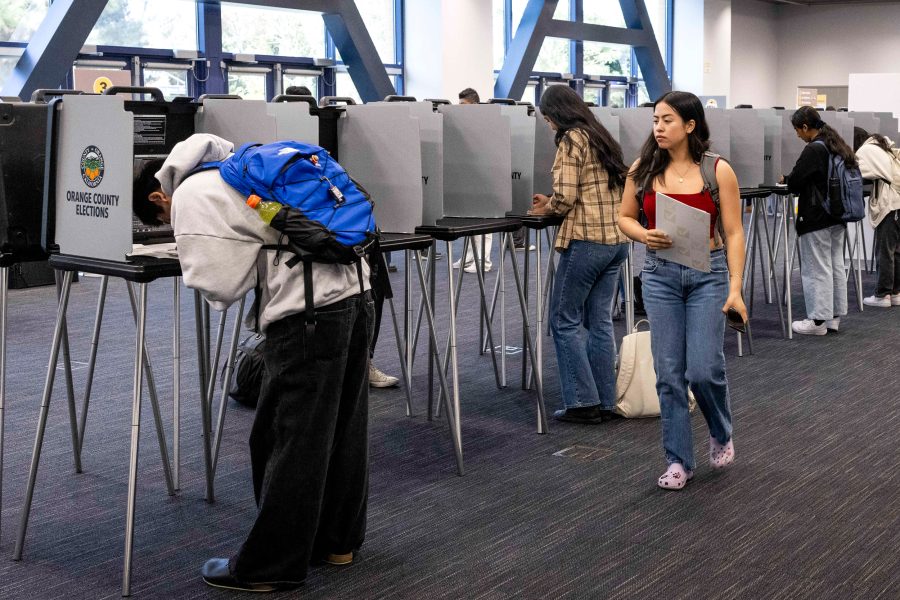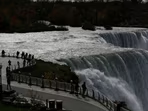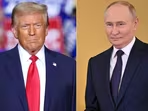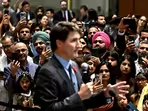Swiss ‘burqa ban’ to take effect from January 1. What are the exceptions?
A controversial Swiss ban on facial coverings in public, referred to as the “burqa ban” will go into effect on January 1, 2025, according to a government statement quoted by Reuters on Wednesday.
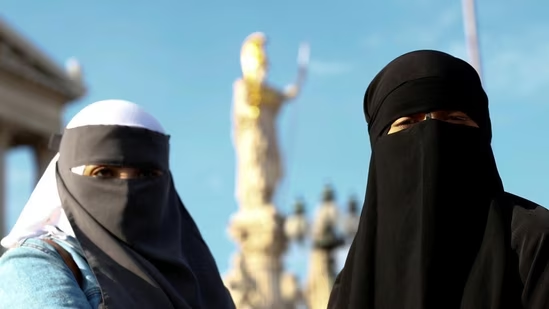
The Federal Council announced that the ban's start date has been set, and violators could face fines of up to 1,000 Swiss francs (approximately $1,144).
The measure, which narrowly passed in a 2021 referendum in Switzerland, was criticised by Muslim organisations. It was introduced by the same group that banned the construction of new minarets in the country in 2009.
What are the exceptions?
The Swiss government, according to Reuters, clarified that the face-covering ban will not apply on airplanes or within diplomatic and consular premises. Additionally, covering the face will still be allowed in places of worship and other sacred sites.
The government noted that face coverings will be permitted for health and safety purposes, for traditional customs, or due to weather conditions. They will also be allowed for artistic or entertainment reasons, as well as for advertising purposes.
Face coverings may also be permitted for personal protection related to freedom of expression and assembly, provided the responsible authority grants prior approval and public order remains intact.
Few women in Switzerland wear full face coverings like burqas, which are more commonly associated with Afghanistan.
When did it all begin?
In September last year, Switzerland's lower house of parliament voted to pass a ban on face coverings, such as the burqas worn by some Muslim women. The National Council approved the legislation with a 151-29 vote, finalising a measure previously endorsed by the upper house. The right-wing, populist Swiss People’s Party pushed for the legislation, despite reservations from centrists and the Greens.
This decision follows a 2021 nationwide referendum in which Swiss voters narrowly approved a ban on facial coverings, including niqabs (which leave only eye slits) and burqas, as well as ski masks and bandannas often worn by protesters. The lower house vote enshrines the ban in federal law and sets a fine of up to 1,000 francs (around $1,100) for those violating it.
The law restricts the covering of the nose, mouth, and eyes in public spaces and publicly accessible private buildings but allows for certain exceptions. Although full-face coverings like burqas are uncommon in Switzerland, they are well-known from countries like Afghanistan.
Two Swiss cantons, Ticino in the south and St. Gallen in the north, already enforce similar bans. This national legislation aligns Switzerland with countries like Belgium and France, which have enacted similar restrictions.
In Switzerland, 100,000 signatures are required to initiate an initiative proposing a constitutional amendment, while 50,000 signatures can prompt a referendum on parliamentary laws. Once a referendum is triggered, it leads to a national vote. Recent referendum issues have included buying new fighter jets and the “burqa ban” on facial coverings.
(With in puts from Reuters, Associated Press)
Disclaimer: The copyright of this article belongs to the original author. Reposting this article is solely for the purpose of information dissemination and does not constitute any investment advice. If there is any infringement, please contact us immediately. We will make corrections or deletions as necessary. Thank you.
Title:Swiss ‘burqa ban’ to take effect from January 1. What are the exceptions?
Url:https://www.investsfocus.com


